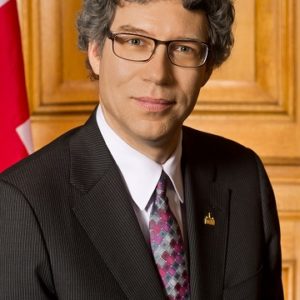Urban Ecosystems and Resource Management
Special Sessions Venue: R1-Cine Alfredo Pareja- United Nations Environment Programme (UN Environment),
- Convention on Biological Diversity (CBD).
- World Health Organization (WHO),
- United Nations Educational, Scientific and Cultural Organization (UNESCO),
- United Nations Department of Economic and Social Affairs (UNDESA),
- United Nations Human Settlements Programme (UN-Habitat).
- Alberto Barandian Ministry Of Environment Peru

- Amy Fraenkel Head Of Division On Mainstreaming Cooperation And Outreach Support Secretariat Of The Convention On Biological Diversity United States of America

- Arab Hoballah Arab Hoballah (UNEP)

- Clarice Meyer Cabral Coordinator Indicators Sustainable Cities Programme Brazil

- Emani Kumar Deputy Secretary General ICLEI

- Patricia de Lille Mayor Of Capetown (TBC) TBC

- Ritva Viljanen Deputy Mayor Of Helsinki Deputy Mayor Of Helsinki Finland

- Russell Copeman Mayor Of The Borough Of Côte-des-Neiges-Notre-Dame-de-Grâce City Of Montreal Canada

- Thomas Elmqvist Professor Stockholm Resilience Centre Sweden

Nature in Cities: Quality of Life and Urban Ecosystem-based Adaptation
This Special Session will focus on the value of nature for urban quality of life and the concept of urban ecosystem-based adaptation (EbA) as proposed in paragraphs 80. Rapid and expansive urbanization, coupled with limited urban planning, has led to the degradation of ecosystems which provide critical resources and services to citizens (such as green infrastructure and protected areas, wetlands and rivers, forests). This has threatened the lives and livelihoods of those in urban communities, and increased their vulnerability to non-communicable diseases, natural disasters, and climate change. The highly urbanizing regions of Asia and Latin America will be the focus of this session. Through a discussion with experts, this session will explore an understanding of the role of nature for cities, and focus on Eco-based Aadaptation as a cost-effective way to reduce climate change vulnerability in urban and peri-urban communities, while providing multiple co-benefits to these communities and the environment through the protection, maintenance, and rehabilitation of the ecosystem.
Intervention by national representatives from Asia, and Latin America and the Caribbean will demonstrate the practical application/commitment to ecosystems and Eco-based Adaptation, and how climate change and urban resilience agendas can be integrated into the social and economic development plans of cities. Guiding Questions
· Why is there a need for Urban Ecosystem-based Adaptation?
· How is it aligned with the national strategy of the country?
· What commitments and actions are required to make urban Eco-Based Adaptation a success?
· What services and benefits can nature and functioning ecosystem bring to urban livelihoods and quality of life?
· How can urban centers and their inhabitants be made less vulnerable to the adverse impacts of climate change and other natural and man-made hazards? · How can networks of open, multi-purpose, safe, inclusive, accessible, green, and quality public spaces be used to improve the resilience of cities to disasters and climate change?
· How can urban planning and development incorporate biodiversity and ecosystem services?
· What can UN agencies, national governments, NGOs and urban decision-makers cooperate to use natural resources sustainably in cities and strengthen the resilience of human settlements?
